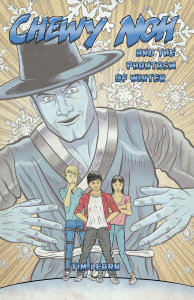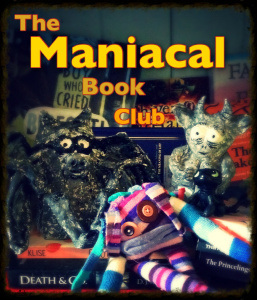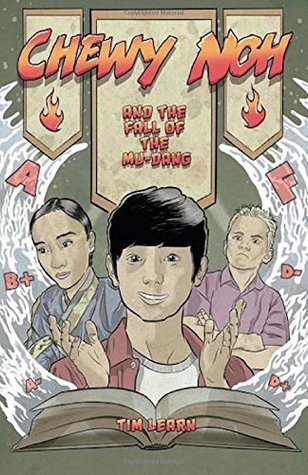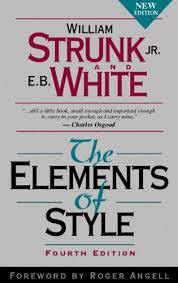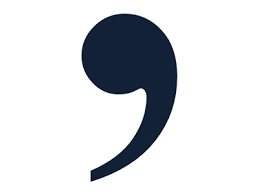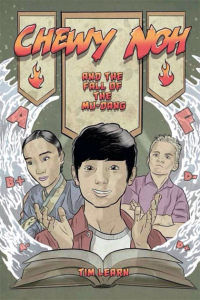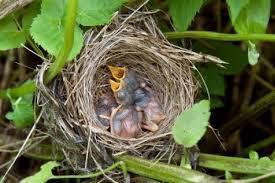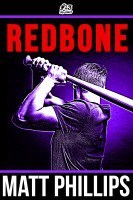Tim Learn's Blog, page 23
June 30, 2015
Chewy Noh and the Phantasm of Winter
The new Chewy Noh comes out July 15th!
Here it is:
Chewy Noh has many problems. Besides his mom becoming a mu-dang—a Korean fortune-teller possessed by his dead grandmother who can read minds—the school bully, Kent, is still on the warpath to get Chewy kicked out of school. With his secret ability to win at everything, none of this bothers him until he starts disappearing for no reason while a mysterious force attacks his fellow students, and he must scramble to figure out what’s going on before he becomes its next and final victim.
Get it at:
or


June 23, 2015
Another Great Review
May 28, 2015
An Indie, MG Maniacal Book Club Review: Chewy Noh and the Fall of the Mu-Dang…
Well-done review. Always unique.
 Originally posted on thebookshelfgargoyle:
Originally posted on thebookshelfgargoyle:
Today’s pick from the Maniacal Book Club features a Korean main character, some American bullying and some all-out, strange, generational magic. We received a copy of Chewy Noh and the Fall of the Mu-Dang, the first in an indie series for middle grade readers, from the author, Tim Learn, for review.
Here’s the blurb from Goodreads:
Chewy Noh has problems. He was born with them. Two weeks after his birth, the family fortune-teller saw bad things in his future…and she was right. The school bully hates him and will stop at nothing to get rid of him. His mother suddenly can’t get out of bed, complaining of horrible headaches. And worst of all, the secret his grandmother is hiding may be at the root of it all. But why should he worry? He’s a superhero with a power no one’s ever seen before!
Let’s hear what the Book…
View original 618 more words


May 23, 2015
To Beat a Grammarian: Commas (Part Two)
To Beat a Grammarian: Commas (Part Two)
You can read Strunk & White and other books of the sort, but when it comes down to it, commas are frustrating. Every writer uses them differently. Some clutter it up; others go light and sparse with them—ask Hemingway. But certain usages are needed, not just for pauses, but clarity. In this round, we’re still dealing with the basics. In other words, the must-do’s of comma work.
Transition words
Most of the time, these words or phrases act as a transition, so I’m labeling it thus, as do certain grammar books. Mainly, what this is talking about is the type of long or short clauses appended to the front of a sentence, like the first two in this paragraph. These clauses are there to smooth out writing and connect ideas. Unfortunately, some writers don’t slip in the commas to make things clearer. For example:
Luckily he had more time and was able to catch up on his missed work.
Though the missing comma doesn’t obscure the meaning or distract the reader, it is customary to have one, and to grammarians, this will stick out like bedhead in church. In other words, they’ll go ballistic, calling you a “hack.” So be careful.
Side note: one word that seems to divide this strict comma rule is ‘then.’ Some toss a comma on after it; others don’t. As far as I understand, its use is preference, but sticklers will be sticklers. Look at the example below, and decide for yourself.
Then he went home or Then, he went home.
Preposition Phrases
With this one, I understand whole-heartedly why a comma is needed. Preposition phrases are a bane to teach my students. Compared to Korean, English abounds with ridiculous prepositions and the different subtleties linked to them. In this way, I guess Korean gets its revenge on us with its multiple layers of honorifics. I will, for the rest of my life, indirectly offend the Koreans I speak with due to my poor honorific understanding. Nonetheless, for native speakers, preposition phrases and their commas should roll more smoothly.
Despite the monkeys eating outside dinner was fun.
Hopefully, you can feel the confusion here. Is this sentence saying: despite the monkeys; despite the monkeys eating; or despite the monkeys eating outside? If your reader has to sit down and ponder this—you will lose them quickly to an easier to read book. For this reason, please, please, please, insert a comma after the noun connected to the preposition.
As for the answer to that strange sentence, you can decide for yourself. But clearly, a comma is needed. Next week, I hope to go on to more, and it’s going to get hairier soon.
Anything I missed, please post it. Thanks!


May 18, 2015
Top Three Words of Advice to New Self-publishing Authors
Top Three Words of Advice to New Self-publishing Authors
It’s been a year now since I started self-publishing. I’ve learned a lot, and the first thing I’d tell myself a year ago is “Don’t do it.” But I’d do it anyways. Why? You learn a lot.
Self-publishing is hard. Any blogger with their book prominently placed on their site will tell you the same. Self-publishing is lonely and without support—unless you have it built in, ie. a voice inside you or a strong spouse. If anything, I feel self-publishing is like the freshman year of college: it weeds out those who don’t plan on staying until the end.
In that same way, it vets you. You begin to see the trends and, with kind and sometimes not so kind words from others, you pick up your weaknesses. At first, many optimists claimed self-publishing would rid the world of the gatekeepers, the traditional publishers. That clearly is not true. But, if anything, I have a feeling it will begin to replace MFA programs. And the best part: self-publishing is virtually free.
Every little notion and detail about publishing, both traditional and self, abound on the web on the very same blogs of authors who are, or aren’t, self-publishing. MFA programs will soon have their work cut out for them. To add to this, and somewhat reiterate, I’ve decided to compose the top three things I’ve learned so far.
Here goes:
1) There is no magic route to getting people to buy your book!
This comes after seeing the plethora of scams that target guilible authors with messages claiming that they can boost book sales. The deal—pay a certain amount and they blast your book around the web.
Simply put: this doesn’t work. Authors always talk about platforms. Platforms are used to announce and spread word of your book, but they are used based on relationships built with other budding writers or loyal readers. And, usually, they work hand-in-hand.
Recently, an author I reviewed sent me a message saying that he was about to release a new book and asked if I’d review it before his release. I said I’d love to and did so. In this way, I sent out a good vibe about his book on my own, having it not tied to any money given to me. It was genuine. As a result, my blog visits went up as well, not to mention page searches for my own book.
Twitter and Facebook blasts don’t do this. If anything, they are the equivalent of infomercials, and as far as I know, not to many avid-readers are big into them.
2) Do not buy ad space
This is based off my own experience with using Goodreads’ ad space option. I decided to drop twenty-five dollars to see what results come out of it. Later, I found a Facebook option that did something similar but for a much heftier price tag. I was wise to have used the Goodreads one first because…it sucked!
The way it works is on each Goodreads page, down on the right hand side, there’s a little box that updates with new books every time the page resets. This is their attempt at marketing. I’ve been on Goodreads enough, yet never even noticed it there. I was unaware of it when I tried and clearly it was a waste.
This somewhat falls under the same heading as above, but deserves it’s own number in the list because many people, myself included, think these bigger entities—Amazon, Goodreads, Facebook—might actually know what their doing and talking about. Wrong! Ads are ads—they are a way to make money. That’s it. So don’t buy into it.
3) Book giveaways don’t work so much either
After starting the aforementioned Goodreads ad, I thought maybe a giveaway wouldn’t be so bad either. The Goodreads prompt promised 80% response rate for reviews from their giveaways. So I thought why not. Reviews could mean more people will give my book a shot. Wrong!
First off, their ‘80%’ is misleading. I did my giveaway six months ago for ten books. Since then, I have received three reviews. You don’t need to be a math whiz, but that’s only 30%, and there’s the catch! Goodreads never said over what timeline those reviews would come in. A year from now I could find another one has been posted. People don’t all read books at the same speed or in the order at which they received them. So on a long enough timeline, Goodreads end up right. I just don’t know if I want to wait that long.
Also, as another blogger pointed out, during giveaways participants click to join and by doing so put your book in their ‘to-read’ list. This doesn’t mean they will read it. On top of this, the most activity comes at the beginning of the giveaway—when it’s at the top of the list—and near the end of the giveaway. Any time in between is wasted. Therefore, if you do a giveaway the best length is not two or three weeks but two or three days, and as the review rate is lower than expected, doing one book at a time may actually increase your viewability.
Besides that, if there’s anything else you guys can think of that I missed, please add it. Someone else may find it extremely enlightening. Thanks!


May 17, 2015
To Beat a Grammarian: Commas (Part One)
To Beat a Grammarian: Commas (Part One)
I cannot vent my frustration enough with these kinds of people! You know them—grammar Nazis. They follow the rules rigidly, and should a rule change, they ignore it vehemently, basing their adamancy on it not coinciding with some near-religious text they once read. In other words, zealots!
But they exist. And to draw a quick analogy: it’s like leaning over to your friend and saying, “Hey, look at that pretty girl over there,” only to have him lean back and say, “Yeah, but her chin sticks out too much, her eyelashes could be longer and, besides that, it’s much more customary not to wear that colored blouse this season.” Can’t the girl just be pretty?
So to combat them, I’ve decided to present little details every so often that I’ve noticed are nit-picky aspects of a grammarian’s repertoire. These are the peccadillos that I’m slowly learning as my own writing or others are ripped apart by these fundamentalists.
So here we go:
Commas (Part One)
I teach in Korea, a place where commas aren’t so greatly used. The language is made to not need them. For this reason, I see many blatant misuses of a very commonly abused punctuation. My students will interchange it with periods because, well, they aren’t exactly sure how they’re different. I can fathom it a bit, but what I can’t grasp is other English teachers or writers doing the same. So here are a few basics.
Comma splices
This is when a comma is used instead of a period. As in this sentence:
I went home, my brother hit me.
Many have a problem with this because computer writing programs don’t even pick this up as incorrect. Right now, my Microsoft Word should be underlining it in green, but it doesn’t.
Correct form: I went home. My brother hit me.
Moving on, we come to the mythos of…CLARITY.
This one even the New Yorker claims as their sole reason behind any—and they have many—comma use. It makes sense in reason but can easily get out of hand at other times. However, I do agree with it in one area: subordinate clauses. If the subordinator begins the sentence, then the comma must come before the next subject to avoid confusion. Take a look below:
When I was eating the baby carrots fell to the floor.
At first glance, it seems you were eating the baby. Eventually, you realize the mistake and correct it in your head. One of my students actually wrote this, and he and I laughed greatly at it. Even though we can figure it out upon reading the whole sentence, this pause for understanding ruins the flow of the writing, and when it comes to fiction, momentum is key. Mistakes like that can derail even the most understanding of readers.
Correct form: When I was eating, the baby carrots fell to the floor.
The opposite of this should be observed as well. Too often, because of the rule above, writers feel a comma must be inserted anytime a subordinate is present, like below:
I went to the mall, because I wanted to see my friends.
Here, the comma is not needed. In fact, commas should be avoided around subordinates most of the time unless these subordinate phrases are interjected mid-sentence. The correct form is:
I went to the mall because I wanted to see my friends.
For now, that’s good. But, clearly, there will be more. Commas—and grammarians—have many issues. I hope to cover more at another time. If you have any comments so far, please, give me a heads up.
P.S. If you have any other examples—specifically hilarious ones—please drop them below as well. Thanks!


May 13, 2015
Review: Chewy Noh and the Fall of the Mu-dang by Tim Learn
Here’s another great review! Just forgot to reblog it until now!
 Originally posted on Northern Chapters:
Originally posted on Northern Chapters:
In Chewy Noh and the Fall of the Mu-dang our hero is Hee-Chu Noh – or Chewy, as everyone calls him – a Korean boy who has moved to America with his mother for school.
View original 405 more words


May 10, 2015
The Fine Line (of comparisons)
The Fine Line (of comparisons)
As Buddhists say, “Comparisons are the root of all evil.” And despite bad judgment, the rule to follow for parents of multiple children. So, too, for an aspiring ‘anything,’ this is a golden rule too quickly forgotten. We draw comparisons between ourselves and every expert we come across. It is best not to put ourselves up against others because it is truly hard to compare anything as a whole. So the rule is: don’t compare. But should it be?
Recently, I started reading a wonderful book by a self-published author. Every line is terse and bitter in the best way. And worse of all, the next line is the same. I could get down about this, but instead, I noticed something else, which was, for this author, not always true. Among the self-published books I’ve read, certain authors interest me and I find myself reading more of their work and I notice the one comparison many fledglings overlook: themselves.
The author above’s first works were immature and highly stereotypical, but with his newest one, he had grown—a lot! The same is true with another writer I converse with. Her first book was riddled with basic errors—shifting voice, flat dialogue, and big info dumps—but on her second time around, it was easy to see a tighter, more controlled narrative. She had figured some things out!
This should not be surprising. Even looking back on my own work, I’ve noticed more concise sentences and sharper grammar than before. It’s an uphill battle, though, and too often we keep eyeing the peak while ignoring the progress we’ve made. It gets even harder the higher we go. Like learning a new language, the first change is so immediate it is easy to spot, but as we go up in levels our rate of improvement is sometimes harder to determine. It’s there, but we don’t see the fine shade it has grown into.
In this way, I feel comparisons aren’t so bad. We’re not trying to beat those long vetted professionals. We haven’t played the game enough. But beating ourselves every step of the way isn’t as gargantuan as the other options seem. Seeing how much you sucked before can only be a booster for you to keep working hard.


May 7, 2015
Review: Chewy Noh and the Fall of the Mu-Dang by Tim Learn
Check it out! Awesome review!
 Originally posted on Love thy Shelf:
Originally posted on Love thy Shelf:

Chewy Noh and the Fall of the Mu-Dang by Tim Learn
Published: September 08, 2014
386 pages
Source/Edition: Provided by author in exchange for an honest review, eBook
Summary provided by Goodreads:
Chewy Noh has problems. He was born with them. Two weeks after his birth, the family fortune-teller saw bad things in his future…and she was right. The school bully hates him and will stop at nothing to get rid of him. His mother suddenly can’t get out of bed, complaining of horrible headaches. And worst of all, the secret his grandmother is hiding may be at the root of it all. But why should he worry? He’s a superhero with a power no one’s ever seen before!
My Review:
This book has been a surprise. If I was younger, it would definitely be a solid 4 but right now, for me, it was a 3.5 — so I rounded…
View original 301 more words


May 5, 2015
Redbone
Redbone
(Adult)
By Matt Phillips
Rating
Synopsis
Calvin Redbone’s life is pretty monotonous. He wakes up, swings his Louisville slugger, walks to work, and eight hours later, comes back home. His life would’ve stayed this way if not for one horrible day that uproots everything. And when things change, Redbone becomes unhinged.
Prose/structure
Prose first. In this department, this book deserves a full five-stars. Phillips’ way with words is wonderful and gritty. He paints sharp, cutting scenes with a main character that is full and rough. Beyond that, he peppers the action with tight quips, imagining a very true world through a very discerning set of eyes: Calvin Redbone’s. There were so many stellar lines I had a hard time choosing my examples below. Trust me, there are many more.
“He smacked his lips and laughed. It was a wild, animal-like chuckle that danced from his throat and died somewhere near the distant hilltop ridges.”
“That’s how life was to him. It was a big machine that fell apart over the years.”
“…used to reflect images back at the audience in their American-made shells. Well, cars used to be mostly American-made, but not anymore.”
“The world, for the most part, is made up of people who are willing to call other people by the right names. It’s just everybody kissing each others’ asses.”
Those last couple ones are particularly important. They set the tone to this novella. It’s the author’s first attempt at a longer piece, and in my opinion, he does a remarkable job. Despite the main storyline revolving around a mysterious death, the true meat of this tale is the slow breakdown of the titular character. He’s an old breed like those tough guys from long ago but now lives in a world that has moved forward without him.
Then why did I not give it a full five-stars? It’s definitely not because it’s a slow read. Phillips has structured it well enough to keep you reading. It took me three days, and that was only because I had little time to spare. I’m sure most could’ve read it faster.
My main qualm came with Redbone himself. I am not this man. I will never be able to sympathize with his woes and defeats. Each person makes their own choices. I believe that, but Redbone sees things differently. Though i may not be like Redbone, I know many that are, many that think the world owes them something and has screwed them out of their due. In this way, I admire what the author has done but find it hard to admire his protagonist.
Overall
I’ve read this author’s earlier stuff and can say he is graduating quickly into some seriously good writing. It is wonderful to see such quick growth. In this book, too, he bounds forward in his first longer piece. It’s good, and you should read it if only to get in on the ground floor. This book is a triple play to which I’m certain a homerun is coming soon in this author’s future.
If you like to see a man and his life come apart, then this book is for you. This book shines in Calvin’s slow psychological breakdown. Every step is vivid and believable, which is no small feat. I cannot get over how fun each sentence is, from a writing standpoint. In fact, it smacks of such stark reality that I wouldn’t find it far-fetched to hear of this story in many local papers around America. The little man is stepped on, and in his anger, isn’t so little anymore.



